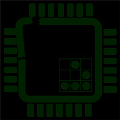The Open Hardware Summit is the annual conference of The Open Source Harware Association (OSHWA), the world’s first comprehensive conference on the Open Source Hardware movement. This year’s summit will be on September 19, 2015 in Philadelphia, PA. The speakers and program have just been announced:
Keynote:
* AnnMarie Thomas, Associate Professor in the School of Engineering, the Schulze School of Entrepreneurship, and the Opus College of Business at University of St. Thomas
Science and Education:
* Ben Leduc-Mills. Open Hardware, Open Minds: The Rise of Open Hardware in Academia and K-12 Education
* Nancy Ouyang. The Rise and Fall of an Open Source Hardware Company
* Peter Marchetto. Open Hardware in Community/Citizen Science
* Ryan Fobel, Christian Fobel, Michael Dryden and Aaron Wheeler. DropBot: an Open-Source Platform for Lab Automation
* Joshua Pearce. Making Open Hardware the New Standard in Science
* Hugo Boyer. Open Source Robotics Foundation and the Robotics Fast Track
Workflow: From Chip to Product:
* Eric Wilhelm. Overview
* Sanket Gupta and Sam Wurzel. Common Parts Library
* Andreas Olofsson. Open Source Chip Design: The Final Frontier
* Hannah Stewart and James Tooze. Circularity and Community Factories – Logic and Geographies of Redistributed Manufacture and Makespaces
* J. Eric Townsend (aka jet). Foundation for a Common Object Description Language
* J. Simmons. Demonstration of Open Source Engineering Analysis and Parametric CAD Modeling for OSHW
* Kipp Bradford. Successfully Manufacturing your Open Source Hardware
Case Studies: Projects and Processes:
* Catarina Mota. History of Open Source
* Joshua Lifton. A Tale of Two Laptops: Case Studies in Open Consumer Electronics
* James Parr. ULTRASCOPE: Automated Robotic Observatory (ARO)
* Myles Cooper, Grace Ahn, Elizabeth Doyle and Michael Searing. Investigating Normal – Hacking Prosthetics
* Bevan Weissman and Dan Beyer. Dynamic Infrastructure for Social Innovation
The Role of Open Hardware Going Forward:
* Benedetta Piantella. Humanitarian Open Source Tech Projects
* Bruce Boyes. What the Wright brothers Can Teach us about Open Source vs Closed Source
* Tega Brain and Surya Mattu. Unfit Bits: Free your Fitness Data from Yourself
* Pedro Oliveira and Xuedi Chen. Open Source Riots – Appropriating Technologies for Protests of the Future
* Tom Igoe. Speaking In Tongues and Catching Flies: OSH and Connected Devices
Program
